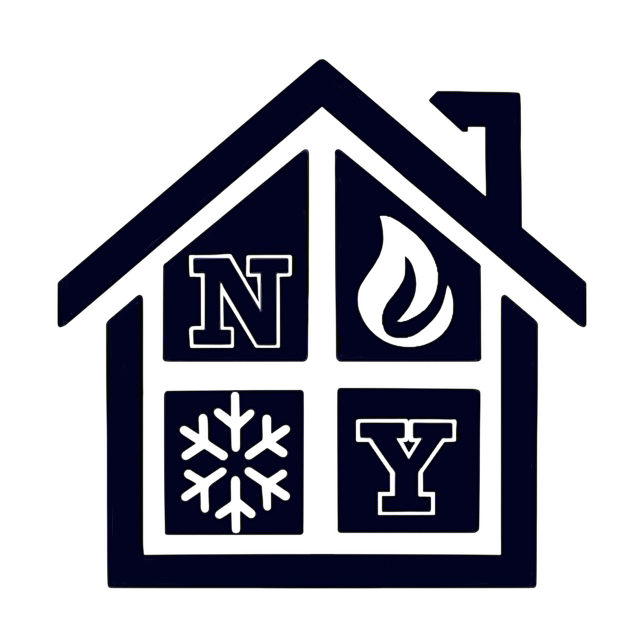What to Expect During a Professional Energy Audit
- New York Energy Assessments

- Jul 2, 2025
- 4 min read
If you’ve ever wondered how to make your home more energy-efficient or how to lower your utility bills, you might want to consider a professional energy audit. Energy audits are comprehensive assessments of your home's energy usage, helping you identify areas for improvement. In this post, we will dive into what you can expect during a professional energy audit, the types of audits available, and the benefits of each.
Understanding an Energy Audit
A professional energy audit is a thorough examination of your home’s energy use, conducted by a certified auditor. The primary goal is to pinpoint how much energy your home uses and where it might be wasted. Typical audits involve examining your heating and cooling systems, insulation, windows, and appliances.
During the audit, the auditor will utilize specialized equipment, such as blower doors and thermographic scanners, to identify leaks and areas that may need insulation or upgrades. The process typically takes a few hours and includes a detailed report of findings and recommendations.

The Benefits of Conducting an Energy Audit
There are several benefits to having a professional energy audit performed. First, the immediate benefit is financial savings. Identifying wastage can help to cut down on your energy bills significantly. The U.S. Department of Energy estimates that homeowners can save 5-30% on their energy bills through energy-efficient upgrades recommended from an audit.
Second, a well-insulated and energy-efficient home is generally more comfortable. Auditors can recommend improvements that keep your home warmer in winter and cooler in summer.
Finally, energy audits contribute positively to the environment. Reducing energy consumption leads to lower carbon footprints, which is a great incentive for eco-conscious homeowners.
What are the Three Types of Energy Audits?
When considering an energy audit, you should know there are primarily three types: walk-through audits, comprehensive audits, and investment-grade audits. Each type serves different purposes and provides varying levels of detail.
Walk-Through Audit
A walk-through audit is the most basic and least expensive option. It typically involves a visual inspection of your home, where the auditor looks for obvious issues such as drafty windows, poor insulation, and inefficient appliances. This type of audit provides useful information but lacks the detailed analysis of the other types.
Comprehensive Audit
A comprehensive audit involves more detailed measurements and tests. The auditor uses specialized tools to assess the home’s insulation levels, airflow, and energy systems. This audit includes blower door tests and infrared imaging to detect areas where you may be losing heat.
Investment-Grade Audit
An investment-grade audit is the most detailed and expensive option and is best for businesses or homeowners looking to make substantial energy investments. This audit involves implementing a range of simulations and calculations, assessing return on investment for energy-saving upgrades.

What Happens During the Audit?
During a professional energy audit, you can expect several key activities to take place:
Initial Consultation: The auditor will begin with a conversation to understand your concerns and goals related to energy use in your home.
Visual Inspection: The auditor will examine your home for drafts, structural issues, and inefficient appliances.
Testing Equipment: You’ll see the auditor use equipment like blower doors to test air leakage, and infrared cameras to visualize heat loss.
Data Collection: The auditor will collect data on your home's energy consumption patterns, analyzing records of your utility bills.
Report Generation: Finally, the auditor will create a detailed report explaining their findings along with actionable recommendations tailored to your specific home.
Recommendations Following the Audit
Following the energy audit, you will receive a list of recommendations and a prioritized action plan. Some common suggestions may include:
Adding insulation in the attic, walls, or floors
Sealing air leaks around doors and windows
Upgrading to energy-efficient appliances
Switching to smart thermostats
Exploring alternative energy options, such as solar panels
If you are searching for reliable services, look for local options by searching for "energy audits near me" to find professionals who can assist you.

How to Choose the Right Auditor
Selecting the right energy auditor is crucial for maximizing the benefits of your audit. Here are some tips on how to find a suitable auditor:
Check Qualifications: Ensure the auditor holds certifications from recognized organizations, such as RESNET or BPI.
Read Reviews: Look for online testimonials or reviews from previous clients to gauge the quality of service.
Ask About Tools Used: A reputable auditor should use advanced testing equipment and provide detailed insights.
Request Sample Reports: Ask the auditor for a sample report to understand how thorough and actionable their recommendations are.
Understand Costs: Get a detailed estimate before the audit so you know exactly what you’ll be paying for and what’s included.
Final Thoughts on Energy Audits
A professional energy audit can be a transformative experience for your home. Understanding the process and knowing what to expect can help you make informed decisions regarding energy efficiency. Whether you are looking to save money, enhance comfort, or lower your environmental impact, the insights gained from an audit are invaluable. By taking follow-up actions on the recommendations provided, you can significantly enhance your home’s energy efficiency and look forward to lower utility bills for years to come.




Comments